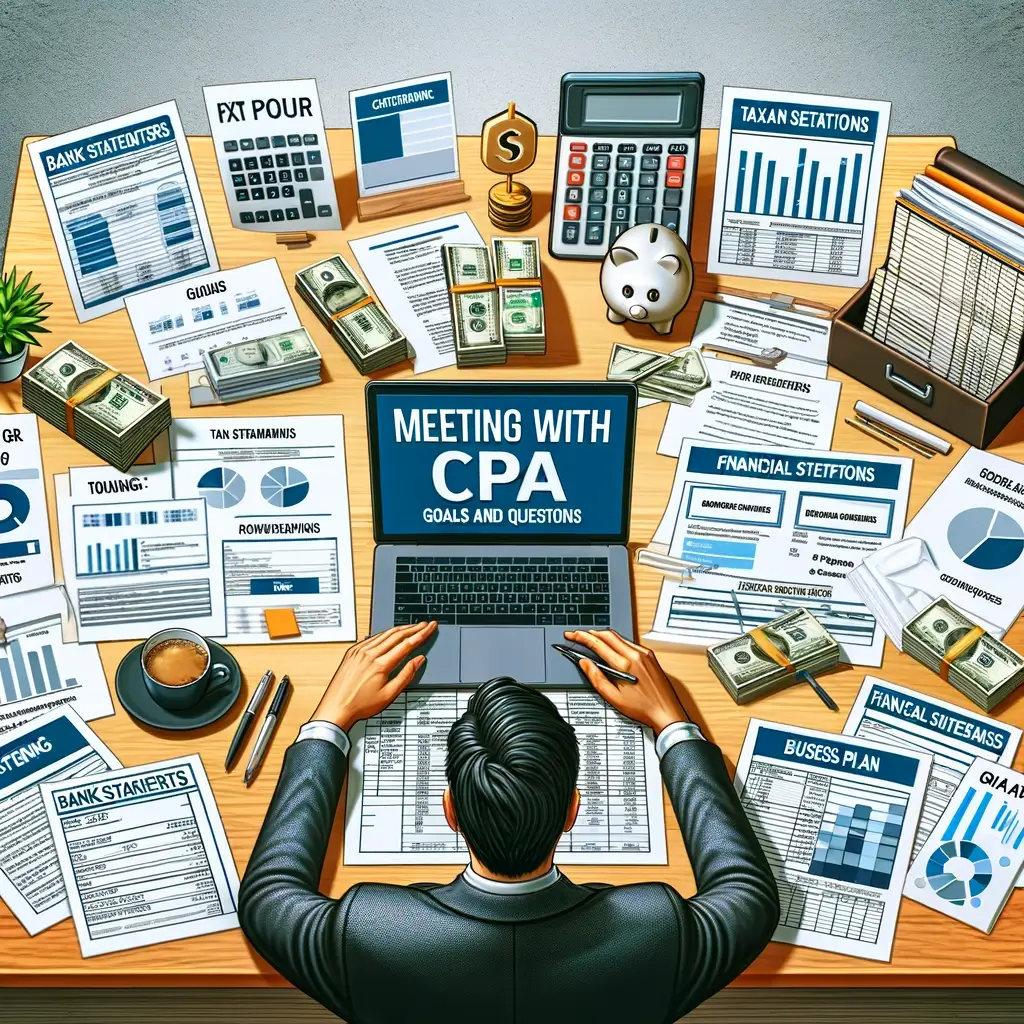Maximizing Your First CPA Meeting: A Guide for Small Business Owners

Embarking on a business journey is akin to setting sail on the high seas. Meeting with a Certified Public Accountant (CPA) for the first time is a crucial step in charting your course to success. To make the most of this pivotal meeting, preparation is key. Here’s a guide to help you come prepared and ensure a fruitful collaboration with your CPA.
1. Understanding Your Financial Story
Before the meeting, take time to understand the financial narrative of your business. What are your main revenue streams? Where do your major expenses lie? Having a clear picture of your financial situation will enable more meaningful discussions with your CPA.
2. Gather Essential Documents
Your CPA will need to see the ‘vitals’ of your business. These include:
- Bank Statements: To get a sense of your cash flow.
- Previous Tax Returns: To understand your tax history.
- Financial Statements: If available, bring your balance sheet, income statement, and cash flow statement.
- Business Plan: If you have one, it provides insight into your future projections and business strategy.
- List of Debts and Assets: This includes loans, credit lines, investments, etc.
3. Know Your Goals and Challenges
Be clear about your short-term and long-term goals. Are you looking to expand? Reduce tax liability? Improve cash flow? Also, discuss any specific challenges you are facing. Your CPA can provide tailored advice if they understand your objectives and hurdles.
4. Questions to Ask Your CPA
Prepare a list of questions. This could include queries about:
- Tax planning strategies.
- Financial health assessment tips.
- Cash flow improvement methods.
- Business structure and its implications.
- Bookkeeping and accounting best practices.
5. Be Open to Advice
CPAs bring a wealth of knowledge. Be open to their advice, even if it challenges your preconceptions. They can offer perspectives and strategies that you may not have considered.
6. Discuss Your Expectations
Be clear about what you expect from this relationship. Discuss how often you would like to meet, communication preferences, and the level of involvement you expect from your CPA in your business.
7. Understand the CPA’s Role
Recognize that a CPA does more than just manage books and taxes. They can be strategic advisors, helping you navigate financial complexities and make informed decisions.
Conclusion: A Partnership for Success
Your first meeting with a CPA is more than a mere formality; it’s the foundation of a partnership that can propel your business to new heights. By coming prepared, you set the stage for a productive relationship that can guide your business through its financial journey, from initial growth to long-term success.
